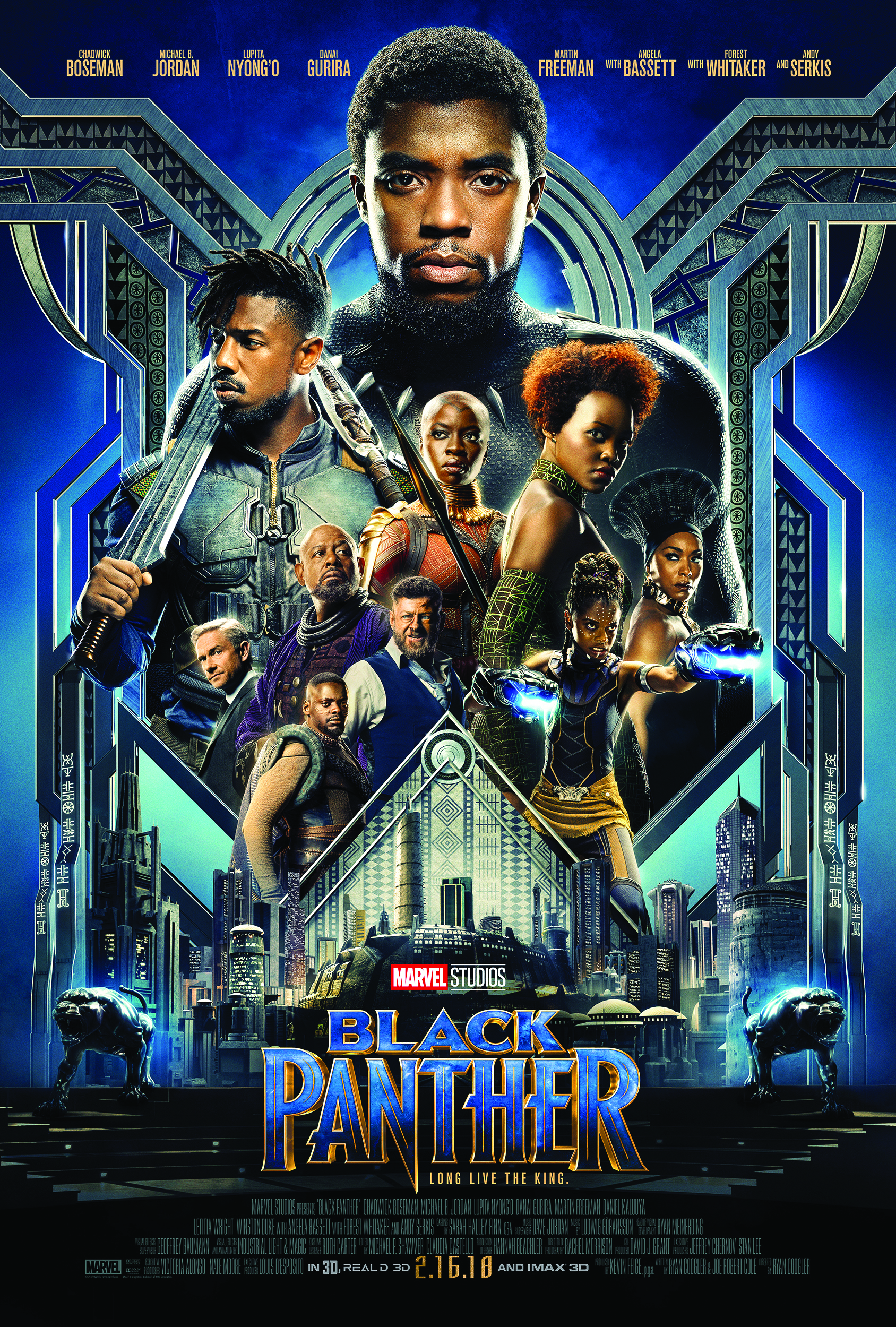“Black Panther”: A Celebration of the Black Experience
Warning: The following contains spoilers for Black Panther
“Black Panther,” the latest installment to the Marvel Cinematic Universe, has set records and redefined the superhero genre. It has brought in over $200 million in North America alone, and has earned a 97 percent “fresh” rating on Rotten Tomatoes, the highest rating of any superhero movie to date. It also set the record for the largest opening of a movie with an African American director. However, what makes “Black Panther” truly special lies outside box office records and reviews.
“Black Panther” sets itself apart from other Hollywood blockbusters in that it stars a predominately black cast. It is directed by Ryan Coogler, who is known for his work with other movies highlighting black experience, including “Creed” and “Fruitvale Station.” It stars Chadwick Boseman as King T’Chala, the Black Panther, and Michael B. Jordan as Erik Killmonger. Both characters are members of the royal family of the fictional African nation of Wakanda, who have a fundamental disagreement on what Wakanda’s relationship should be with the “colonizers.” This is the name Wakandans give to those in power in predominately white, Western nations because of the history of white oppression of other ethnic groups.
T’Chala believes that Wakanda’s secret, true nature of technological advancement through their utilization of vibranium should be kept hidden from the outside world for fear that the “colonizers” will try to exploit Wakanda like they have with other African nations throughout history. Killmonger grew up in a poor black neighborhood in the United States, which led him to resent the subtle racist foundations of society he experienced there. He blamed the “colonizers” for the predicament of his black brothers and sisters in Western society. Killmonger decided that he would arm black people all over the world with the technology of Wakanda, so they could overthrow the societies in place that tend to promote white oppression of minorities.
This difference in opinion has split audiences and characters in the story alike as to what is the right choice. By the end, it is decided that Wakanda will open its borders to help the technological advancement of the rest of the world with King T’Chala leading the exchange of information.
“Black Panther”’s true significance does not lie with its intriguing plot, excellent comedy, or even its well-choreographed action sequences. Instead, Black Panther gives a refreshing celebration of black culture not often seen in mainstream media. Black men are used to seeing themselves portrayed as poor, violent thugs, or as token, supporting characters to white, lead actors. Meanwhile, black women often see themselves portrayed as being loud and obnoxious, or act in a weak, supporting role to help white women through their problems.
“Black Panther” breaks that mold. Chadwick Boseman delivers an electrifying, charismatic performance worthy of a king that shows what a black man can accomplish when he is not weighed down by the Eurocentric culture of Western society. Michael B. Jordan acts as a black man who is not afraid to call out the systematic oppression of minorities in a white-dominated society. Lupita Nyong’o proves to black women that they have every right to be unapologetically successful in any field they choose, including technological advancement and the sciences. Danai Gurira proves that black women can be fierce warriors that can fight for any causes they believe in without fear.
Overall, “Black Panther” is a riveting movie that challenges everything that has come before it in cinema. Whether you are a black man or black woman, “Black Panther” will have you leaving the theater feeling like royalty.



